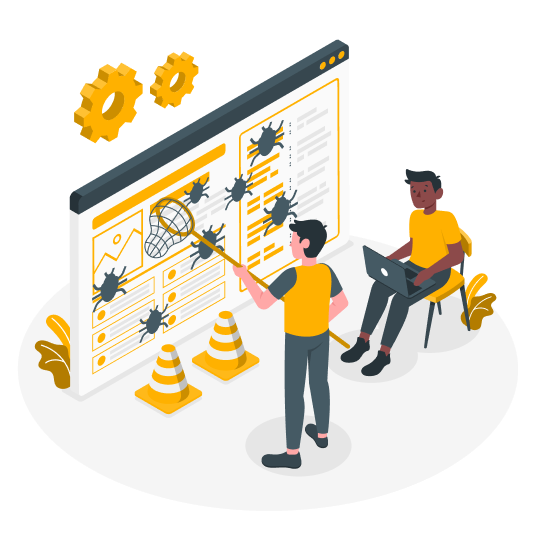
Move One Step Closer to Achieving the Quality Analyst Goals with Us!
The procedure of software testing is carried out to ensure the delivery of supreme quality software products or services, free of bugs and glitches to the clients. Majorly, quality assurance learning focuses on processes involved in the development of any software taking fixing bugs and improving any application's performance into account. The major performance parameters include usability, security and reliability such that the designed software conforms to the defined standards.
The procedure of software testing is carried out to ensure the delivery of supreme quality software products or services, free of bugs and glitches to the clients. Majorly, quality assurance learning focuses on processes involved in the development of any software taking fixing bugs and improving any application's performance into account. The major performance parameters include usability, security and reliability such that the designed software conforms to the defined standards.

Our Quality Analyst (QA) testing course will make you familiar with the types of testing i.e. automation and manual, process models used in software companies, test case design techniques, all about troubleshooting and different bug finder tools. Work on live projects and get trained under expert supervision at our software testing coaching centre near you.
A detailed roadmap of what an applicant will get to learn in quality testing and the skills they will master at the end of the course consists of -
The most prevalent Bug tracking and quality assurance testing tools that an applicant joining the best software testing training institute in Jaipur will be inclusive of include -
JIRA
Bugzilla
Mantis
Asana & more.


Quality Analyst (QA) training involves manual testing and automation testing, along with mastering software testing fundamentals. This requires personalised supervision of experts to resolve queries in time, especially for beginners with no prior experience in quality analysis and testing. We provide rigorous training to all our applicants and also let them work independently on live projects in these software testing training classes.
